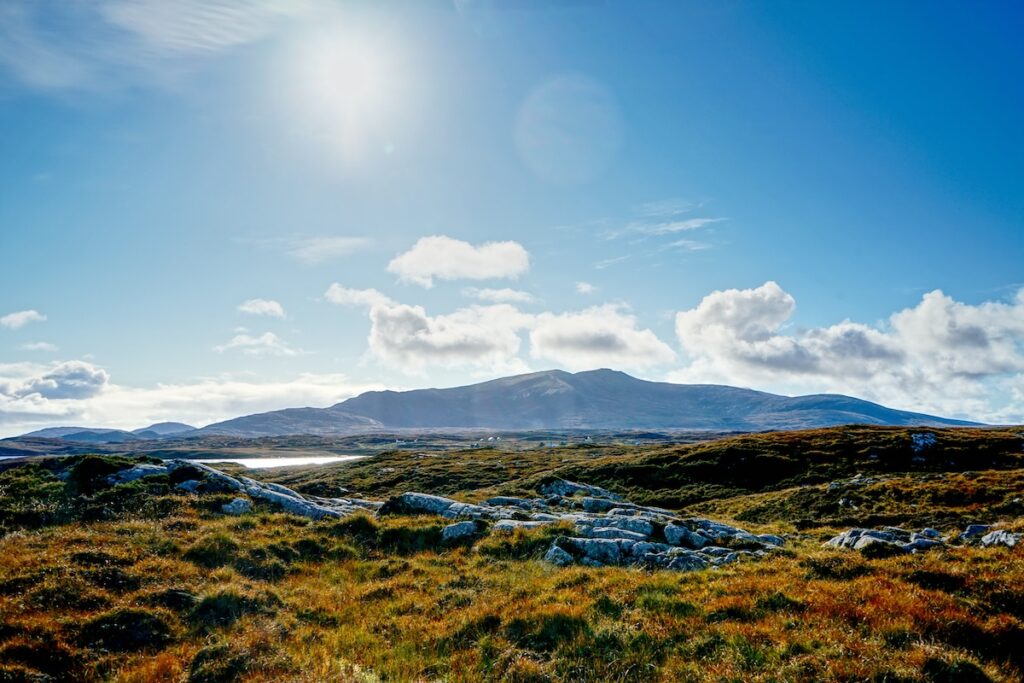Residents of the remote Isle of South Uist in the Outer Hebrides are getting mobile broadband coverage for the first time as 4G closes the gap on the digitally excluded.
Community members are benefiting from the first publicly funded Shared Rural Network connection to address a ‘total not spot’ – where there was no mobile coverage from any operator.
The development provides 4G coverage from all UK mobile operators, significantly enhancing connectivity for residents, businesses, and tourists.
The mast on South Uist provides mobile broadband to people living and working in the villages of Balivanich, Grimsay, Liniclate, across almost the entirety of Benbecula, to more than 30km of the A865 and many kilometres of other smaller roads and tracks.
Whether visiting Ushenish Lighthouse, walking The Hebridean Way or wildlife watching around the lochs, visitors to this part of the Outer Hebrides now have access to reliable 4G for the first time. In addition, seafarers and fishermen passing through and working in The Little Minch between South Uist and Skye will also benefit.
The mast was built by Virgin Media O2 and will deliver commercial coverage from all four operators, including EE, Three and Vodafone.
Telecoms Minister Chris Bryant said: “For too long, island communities in Scotland have struggled to get online while on the go. This milestone for the Shared Rural Network means vast swathes of Uist are now covered by 4G for the first time, boosting productivity for local businesses and safety for those in remote areas.
“South Uist is the first location to benefit from this new phase of the programme, which targets areas with no 4G coverage at all. We will continue to work with the mobile network operators to maximise the benefits of this rollout for local communities while preserving areas of natural beauty.”
Ben Roome, CEO of Digital Mobile Spectrum Limited, which represents the four major mobile operators, said: “This site shows what can be achieved when industry, government and local stakeholders work together. Making good 4G coverage available wherever people choose to be across the UK, underpins the Shared Rural Network programme. This site going live builds on the incredible achievement of the mobile operators hitting their industry-funded coverage targets.”
Torcuil Crichton, MP for Na h-Eileanan an Iar, said: “I’m delighted that the Western Isles is the first area in the UK to have this publicly funded scheme switched on with the major mobile networks co-operating to fill in the blanks in the service. There are dips and black spots in mobile provision which islanders are familiar and frustrated with but by collaboration, and with government support, I hope that businesses, households and visitors to the islands can soon have full mobile broadband and 4G reception from Barra Head to the Butt of Ness.”
The four mobile network operators continue work to minimise the number of new masts required and now expect to meet the programme’s objectives with far fewer sites than originally planned. Feedback from communities and special interest groups plays an important role in agreeing the best locations for new infrastructure, and the mobile network operators and Government are working with stakeholders across Scotland to ensure the benefits of new sites are balanced with any environmental impacts and other concerns.
Alasdair Allan MSP for Na h-Eileanan an Iar, said: “I am very pleased that this Shared Rural Network Total Not Spot site in South Uist has now been switched on, bringing 4G coverage to areas which previously didn’t have coverage from any operator. This will be beneficial for local residents, business and organisations, as well as those visiting the area. While there is still much to be done to continue improving our islands’ overall digital and mobile connectivity, this is a very welcome step forward.”
The SRN – a programme brokered by the Government and joint-funded with mobile network operators to improve mobile coverage in rural areas – has already delivered new 4G coverage to an additional 30,000 square kilometres, an area twice the size of Northern Ireland. The programme addresses long-standing connectivity challenges in rural areas by ensuring reliable mobile coverage from all our operators, EE, Three, VMO2 and Vodafone.
Through the SRN programme, the Government and the UK’s four mobile network operators aim to provide 4G coverage to an additional 280,000 premises and 16,000km of the UK’s roads.
